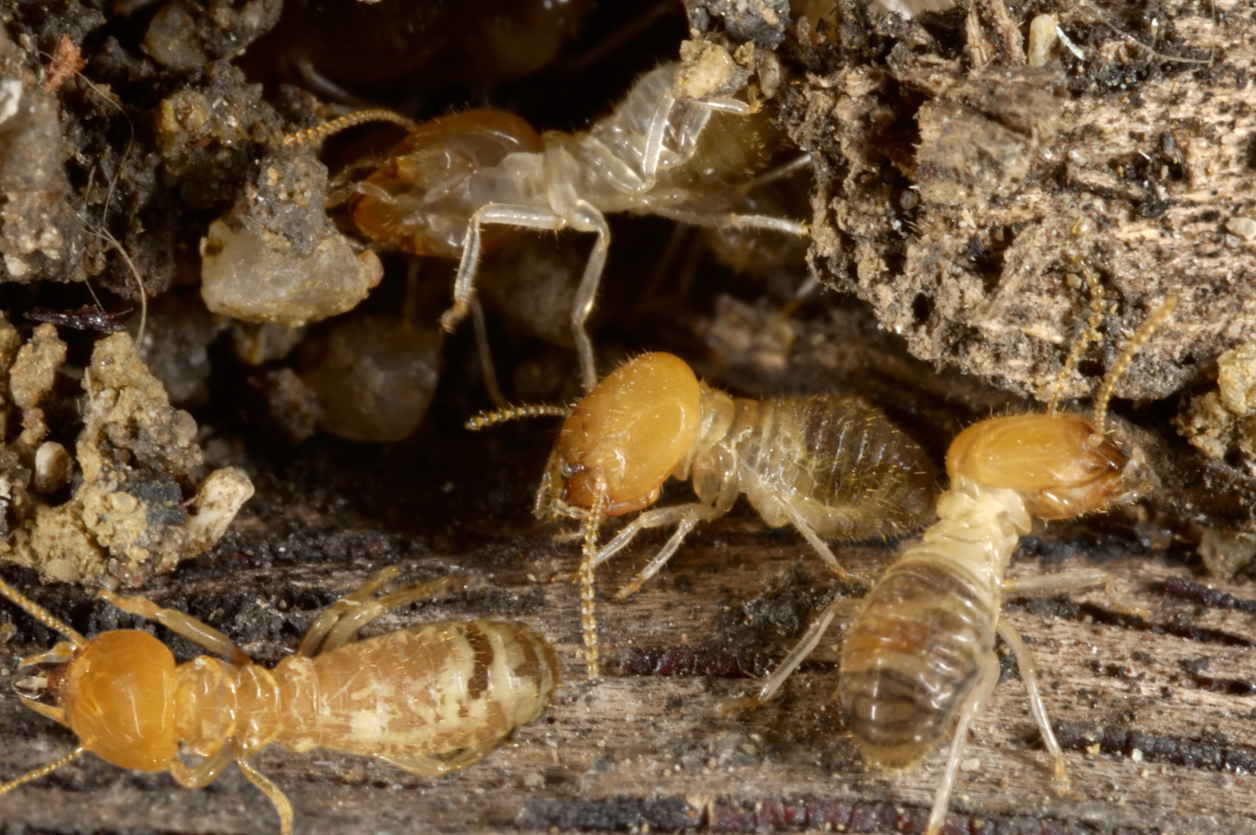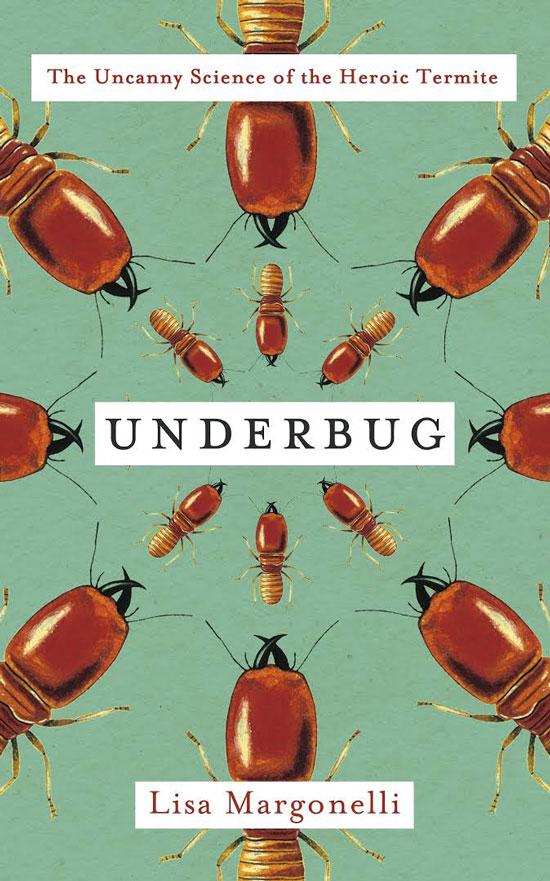Back in 2008, I was reporting and writing about petroleum when a group of scientists at the US-government-run Joint Genome Institute (JGI) invited me on a ‘Termite Safari’ to gather 10,000 termites in the Arizona desert. JGI was then sequencing the genes of the microbes in termite’s guts in the hope of replicating the bugs’ ability to digest wood, but for human purposes; they wanted to create biofuels from wood and grass that could combat greenhouse gas emissions. I was intrigued – and tired of the problems of oil – and so I accepted their invitation and then spent a few days with them, driving around and finding termites.
That trip through the scraggly desert of Arizona was an introduction to the ways of termites. I searched under rocks and in well-eaten pieces of wood for the bugs, which are cryptic – or hiding – in that landscape. When I finally found a few workers, they formed an icky clump in my test tube. I began to wonder what a ‘termite’ was. These workers could not reproduce without their queen, could not defend themselves without soldiers and their nest, could not eat wood without the microbes in their guts. The popular word for this all-for-one lifestyle is ‘superorganism’, but scientifically, that’s not a particularly useful term. And by the end of the day I realised that wherever I didn’t see debris – old branches, bits of grass – it was because termites, which are small as individuals but collectively a massive force on the landscape, had eaten it.
So I ended up studying the weird ways of termites, and the lives and dreams of the many scientists who would like to take the skills of bugs – their ability to digest cellulose, build high mounds, capacity to somehow ‘think’ as a group, and their vast ecological influence – and adapt them for human purposes.
Before I knew it I’d spent years following the bugs and the scientists, who had some surprising revelations. The roboticists, for example, realised that termites do not behave identically – like robots – but appear to have personalities, leaders and followers, and memories. Physicists studying the tall mounds termites build in Namibia and India discovered that though these mounds often work like lungs – that is they transfer air in and out of the nest – different types of mounds work in distinctly different ways. And scientists studying the microbes inside termites’ guts realised that some of them had been co-evolving with termites for 150 million years or so.
Both as bugs and as microbes, termites show how the cooperation of many tiny creatures can accomplish huge tasks. The bugs build mounds that are, in scale, the size of the Burj Kalifa, using just mouthfuls of dirt. These same bugs – there are perhaps five kilos of bugs in a mound and they have co-evolved with a fungus – will consume as much dead grass per year as a fully-grown cow.
Across the many dry parts of the planet, termites’ work remodelling and fertilising soil with their faeces creates ‘hotspots’ of greenery that attract geckos, birds, and even elephants – and they make the land more resilient to climate change. If we could harness this sort of collaboration – getting microbes to produce fuels or building small robots that could do autonomous construction in disaster zones – it could really be a hopeful thing for the planet.











